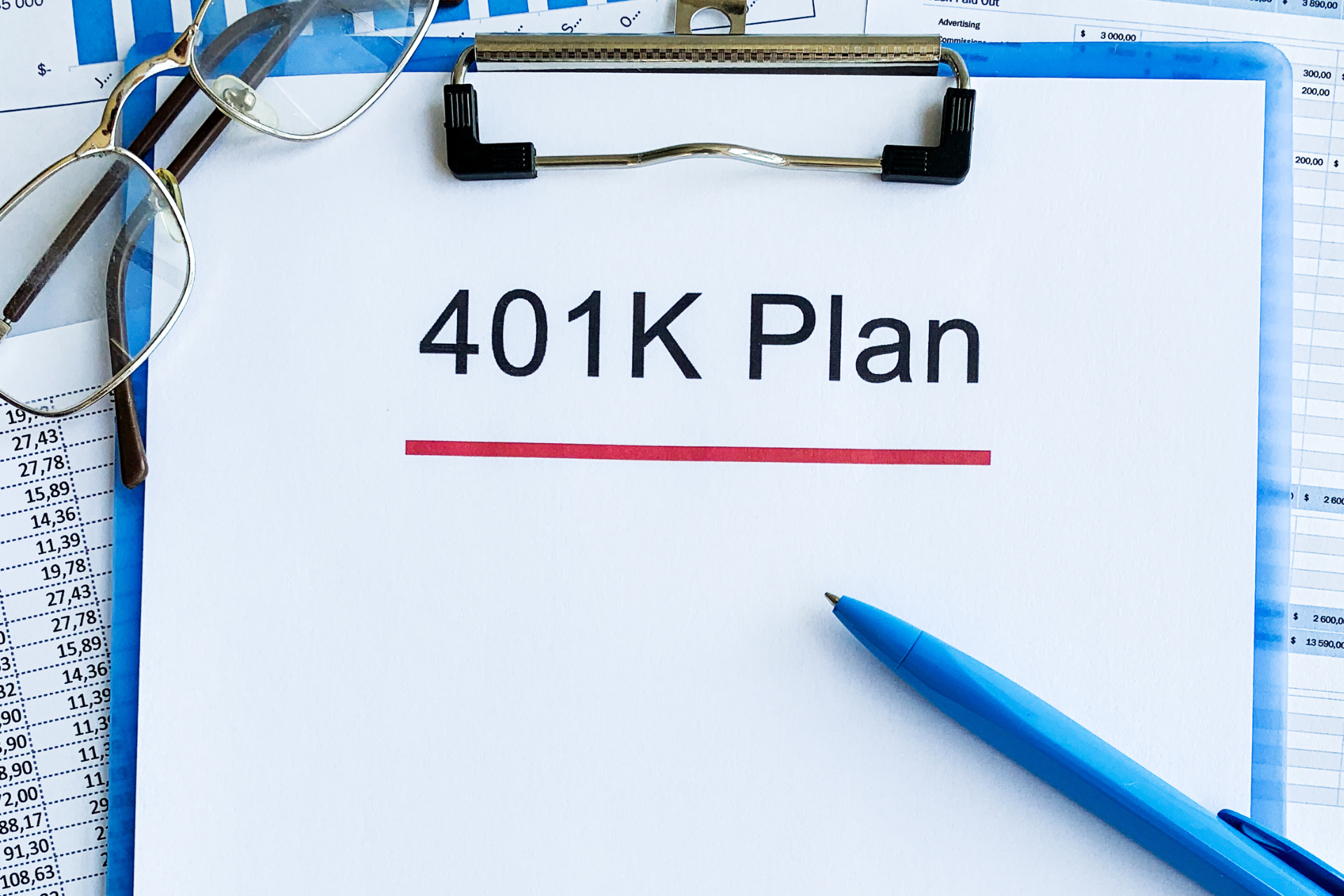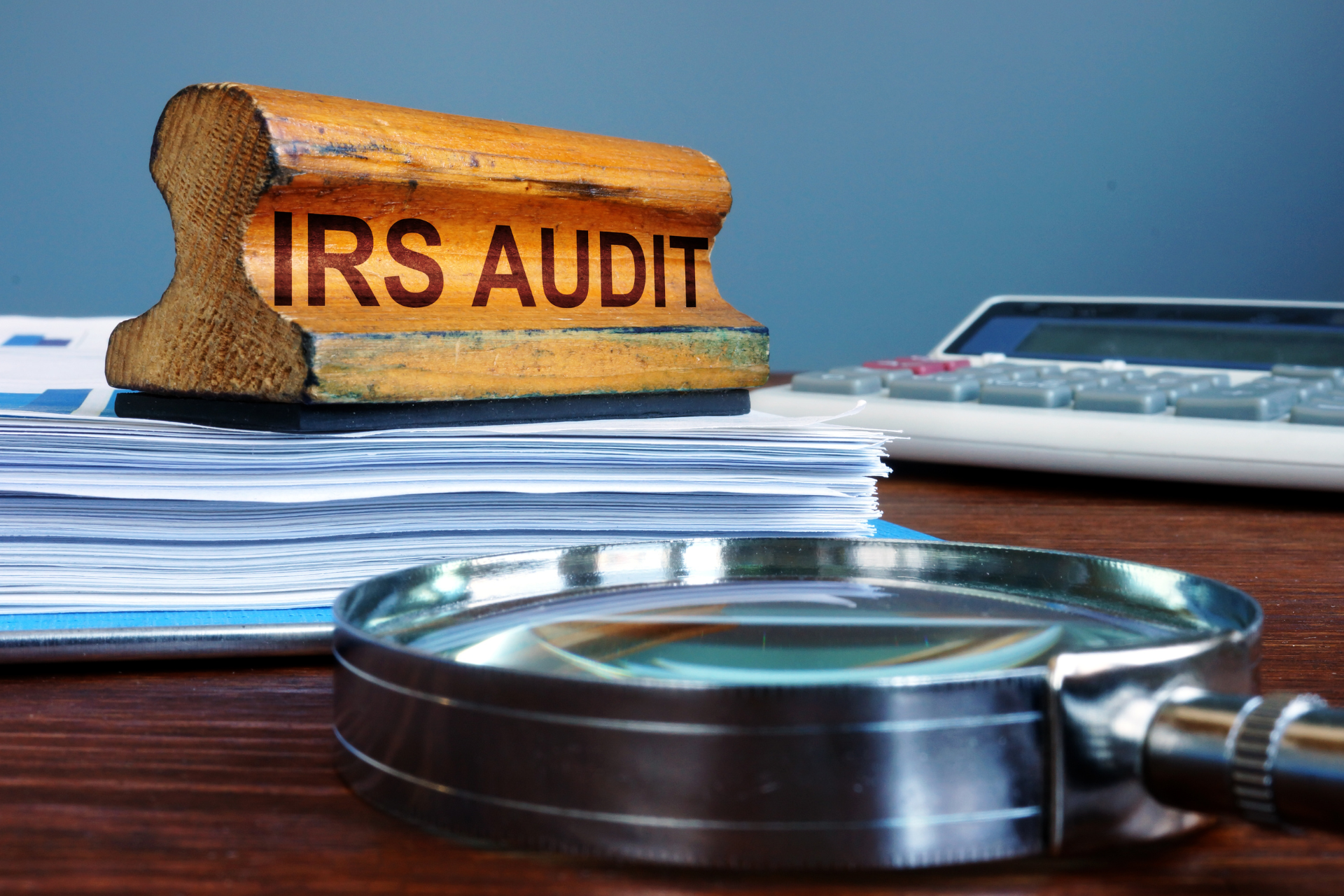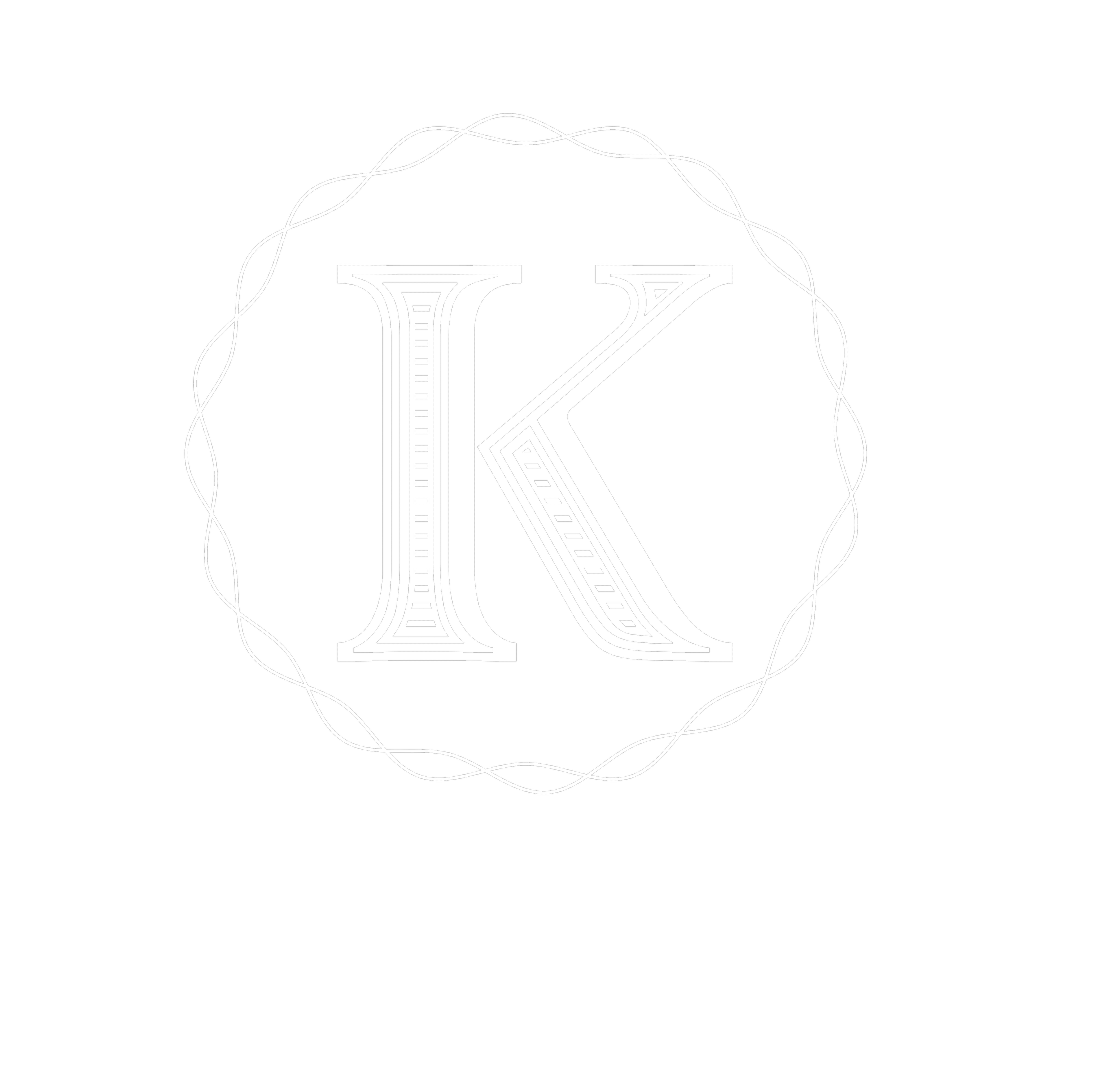Blog Layout
Enhance Your Business’s Financial Health with Proactive Tax Planning
Michel Knott • June 10, 2024
Embrace the Post-Tax Season: Boosting Tax Efficiency
As we close another tax season, it's crucial to remember that our work is far from over. Now is the perfect time for businesses to implement practices that enhance tax efficiency and ensure preparedness for any potential audits. At Knott CPA, we’re here to help you navigate this essential aspect of financial health.
Key Strategies for Tax Efficiency
Receipt Management
Keeping track of receipts is vital for substantiating expenses and claiming deductions. Utilizing digital tools to scan and store receipts not only reduces physical clutter but also makes it easier to retrieve specific documents when needed. This proactive approach simplifies the process, especially during tax season.
Deductible Expenses
Understanding and tracking deductible expenses throughout the year can minimize the year-end scramble. By keeping detailed records of these expenses, businesses can maximize their deductions and reduce their taxable income effectively.
Mileage Tracking
For businesses that use vehicles, maintaining a detailed log of miles driven for business purposes, including dates, destinations, and purposes, is essential. This meticulous record-keeping ensures that you can claim all eligible mileage deductions.
Meals and Entertainment
While business meals can be deductible under certain conditions, it's important to note that entertainment expenses are no longer deductible. Ensure that your records clearly differentiate between meals and entertainment to avoid any confusion during tax filings.
Home Office Deductions
If you use part of your home regularly and exclusively for business, you may be eligible for a home office deduction. Keeping detailed records of expenses related to this portion of your home will support your claims and potentially lower your taxable income.
Proactive Tax Planning
Engaging in proactive tax planning is essential for avoiding penalties and optimizing deductions. Making estimated tax payments throughout the year and contributing to employee retirement plans can significantly impact your financial strategy. At Knott CPA, we evaluate your contributions to ensure they align with your financial goals and tax strategies.
Preparing for an Audit: Essential Documents
In the event of an audit, having the right documents on hand is crucial. Here are the types of documents you will need:
Bank Statements and Invoices
Maintaining all bank statements and matching them with invoices and receipts helps verify the transactions recorded in your books. This verification is crucial for demonstrating the accuracy of your financial records.
Employment Records
Detailed records of employment taxes and filings are essential for compliance and audit readiness. Keeping these records organized and accessible will streamline the audit process.
Financial Statements
Regularly reviewing and reconciling your financial statements, including profit-and-loss statements and balance sheets, ensures that your financial records are accurate and up-to-date. This practice not only aids in audit preparation but also in overall financial management.
How We Can Help
Our firm is dedicated to supporting your business’s financial health year-round, not just during tax season. Whether it's strategizing for tax reductions or preparing for potential audits, we’re here to provide advice tailored to the unique needs of your business.
Schedule a Consultation with Knott CPA today to explore how we can assist you with proactive tax planning and ensure your business is always ready for whatever comes its way.

October 3, 2024
We are excited to announce that Knott CPA is relocating to a new office on October 28th. As our valued clients and partners, we want to ensure a smooth transition for everyone involved. Below, you'll find everything you need to know about our move, including important dates and our new address. Important Details: New Address: 65 Regency Way Moving Date: October 28th What You Can Expect: Our new office will feature improved facilities that allow us to work more efficiently and comfortably, ensuring that we can better serve your accounting and financial needs. While the address is changing, our commitment to providing you with personalized service remains the same. Visit Us After the Move: We look forward to welcoming you to our new office space. If you have any questions or would like to schedule a meeting after October 28th, feel free to contact us. Thank you for your continued trust in Knott CPA. We are excited to continue working with you from our new location and look forward to serving you better in our enhanced space.

October 1, 2024
As of January 1, 2024, a new reporting requirement under the Corporate Transparency Act (CTA) took effect. At Knott CPA, we know this change may raise questions, and we're here to provide clarity on this important topic. Below, we've compiled some frequently asked questions (FAQs) to help you understand what this means for your business and how you can stay compliant. What is a BOI Report? A Beneficial Ownership Information (BOI) report is a document that provides essential details about the ownership of a company. Specifically, it includes information such as the company's legal name, mailing address, and employer identification number. Additionally, it requires disclosure of key details about the company's beneficial owners, including their name, birthdate, address, and a unique identifying number from a driver’s license, passport, or state-issued ID. When Are BOI Reports Due? The due dates for BOI reports depend on when your company was established: New Companies (established in 2024 or later) : You have 90 days from the date of formation to file your BOI report. Existing Companies (formed before 2024) : You must file your BOI report by January 1, 2025. How Often Are BOI Reports Filed? BOI reports do not expire and do not require annual filing. However, if any information within the report changes (such as the details of beneficial owners), you are required to submit an updated BOI report within 30 days of the change. Who Needs to File a BOI Report? BOI reporting applies to domestic companies formed by filing a document with the Secretary of State or a similar office, including corporations and LLCs. However, some companies are exempt from this requirement, including: Publicly traded companies Financial services firms Tax-exempt organizations Accounting firms Large operating companies that meet specific criteria Why Is the BOI Reporting Requirement Still in Effect Despite a Court Ruling? On March 1, 2024, a federal court in Alabama ruled that the reporting requirements under the CTA were unconstitutional in the case of National Small Business United v. Yellen. However, this ruling only applies to the plaintiffs in that specific lawsuit. For most other entities, including those not exempt from the BOI requirements or not involved in that lawsuit, the CTA remains in full effect. How Knott CPA Can Assist You At Knott CPA, we're here to help you navigate the complexities of these new reporting requirements. If you believe your company needs to file a BOI report, we can assist you in gathering the necessary information and ensure your report is submitted correctly and on time. Contact our team today to discuss your specific situation and ensure compliance with the Corporate Transparency Act.

September 9, 2024
As the year quickly draws to a close, it's crucial to make sure your 401(k) plan is on track. Here are six key steps to take before the end of the year to maximize your retirement savings and ensure your financial future is secure. 1. Max Out Your Contributions The contribution limit for 2024 is $23,000 for those under 50 and $30,500 for those 50 and older, including catch-up contributions. If you haven't reached this limit, consider increasing your contributions now. Maxing out your contributions not only boosts your retirement savings but also provides potential tax benefits. 2. Adjust Payroll Deductions If you need to contribute more to meet your retirement goals, adjust your payroll deductions accordingly. Contact your HR department to ensure these changes are made promptly. This step is essential to ensure that you contribute the desired amount before the year ends. 3. Assess Investment Allocations Review your current investment allocations to ensure they align with your risk tolerance and retirement goals. The end of the year is an excellent time to rebalance your portfolio if necessary. This helps maintain the right level of risk and can optimize your returns as you approach retirement. 4. Maximize Employer Match Make sure you are contributing enough to receive the full employer match. This is essentially free money that can significantly enhance your retirement savings. Check your plan details and adjust your contributions if needed to take full advantage of this benefit. 5. Review and Update Beneficiaries It's important to keep your beneficiary designations up to date, reflecting any life changes such as marriage, divorce, or the birth of a child. This ensures that your 401(k) benefits are distributed according to your wishes and avoids any legal complications in the future. 6. Plan for Required Minimum Distributions (RMDs) If you are 72 or older, you are required to take RMDs from your 401(k). Failing to take the RMD can result in substantial penalties. Make sure you know the amount you need to withdraw to meet the RMD requirement and avoid any unnecessary fines. Taking these steps now can help you maximize your retirement savings and ensure you are on the right track for a secure financial future. If you have any questions or need assistance, don't hesitate to reach out to Knott CPA. We're here to help you make the most of your 401(k) plan.

August 9, 2024
As tax season comes to an end, the potential for IRS audits can become a concern for many. While audits are not common, they do happen, and it's important to be prepared. At Knott CPA, we want to ensure that you have the information you need to navigate an audit confidently and with minimal stress. Below, we've compiled a list of frequently asked questions about the IRS audit process to help you understand what to expect and how to handle it if you are ever audited. How Common Are IRS Audits? Q: How often do IRS audits occur? A: Audits are relatively rare. The IRS and other tax authorities conduct audits to verify the accuracy of tax returns, but the vast majority of taxpayers and businesses are not audited each year. Q: What might trigger an audit? A: The IRS uses automated matching to ensure all reported income is included on your return. Discrepancies can lead to a letter requesting corrections, but this differs from a full audit. What to Expect During an Audit Q: What happens if I am selected for an audit? A: Here’s a brief overview of the audit process: Notification: You will receive an official notice from the IRS or relevant tax authority. This notice will specify which parts of your return are under review. Documentation: You'll need to provide supporting documentation, such as receipts, invoices, and bank statements, to substantiate the income, deductions, and credits claimed on your return. Communication: Throughout the audit, you may need to answer questions and provide additional information to the tax authorities. Resolution: After the audit, the tax authority will issue a final determination. If discrepancies are found, you might owe additional taxes, penalties, or interest. If your return is accurate, no further action is needed. You have the right to appeal if you disagree with the results. Timing and Frequency of Audits Q: When can audits happen? A: Audits can occur at any time but are most common after tax season and during the summer. They can happen year-round and vary depending on the type of audit and the tax authority involved. Q: Are some businesses or individuals more likely to be audited? A: Yes, the IRS may conduct random audits, select returns based on risk factors, or target specific industries or tax issues. Preparing for an Audit Q: What should I do if I’m audited? A: Do not panic. An audit is a review process to ensure your financial information aligns with your tax return. Maintain organized records and promptly respond to any requests from the IRS. Q: How can Knott CPA help? A: Our team is here to support you throughout the audit process and ensure ongoing tax compliance. If you have specific questions or need to discuss audit-related matters, please feel free to contact us. We’re always here to assist you.

By Michel Knott
•
July 10, 2024
Managing a 401(k) plan for your business can be challenging, especially when former employees leave their savings in your plan. While this might be convenient for some former employees, it may not always be beneficial for your business. Smaller balances can lead to higher fees and/or expensive annual audits, which is particularly burdensome for small businesses. Here are some steps you can take to mitigate this issue: 1. Review Your Participant Roster Annually Identify former employees with balances in your plan. For those with small balances (under $5,000), use a "force out" provision to move their savings to an IRA. Ensure your plan includes this provision and provide the necessary notifications to former employees. 2. Communicate with Former Employees Conduct an outreach campaign for those with larger balances, encouraging them to roll over their funds to an IRA or a new 401(k) plan. Clear communication can help reduce the number of inactive accounts in your plan, ultimately lowering your administrative burden and costs. 3. Follow Up on Unreachable Employees Use certified mail to contact former employees. Check all your records for updated contact information. Reach out to designated beneficiaries if you cannot contact a former employee. Utilize free online search tools, such as LinkedIn, public records databases, and search engines, to try to locate the individual. Taking these steps not only helps manage your 401(k) plan more effectively but also reduces unnecessary costs associated with maintaining accounts for former employees. For further assistance with managing your 401(k) plan or other related matters, don't hesitate to contact our business. We are here to help your business every step of the way.

By Michel Knott
•
May 9, 2024
As the sun shines brighter and the days grow longer, it’s the perfect time for business owners to consider hosting summer team-building activities. Not only are these gatherings great for morale, but they also come with significant tax advantages. At Knott CPA, we’re here to guide you through understanding which of these activities are deductible, ensuring your summer fun is both enjoyable and economical. Why Consider Deductible Team-Building Activities? Team-building activities are vital for fostering a strong company culture and keeping employees motivated and connected. What makes these summer activities even more appealing is the potential for tax deductions. According to IRS regulations, employers can fully deduct costs associated with recreational or social activities primarily for the benefit of employees, such as summer picnics, holiday parties, or general team-building events. This includes 100% of food and beverage costs provided at these events. Maximizing Deductions on Team-Building Expenses To fully benefit from these deductions, it’s crucial to ensure that all expenses are necessary and customary for your business operations. Keeping detailed records is essential; you’ll need receipts, guest lists, and documentation of the event’s purpose and the benefit to your employees. Here are a few tips to keep your event deductible: Invite the Entire Team : For an event to qualify for 100% deduction, all employees must be invited. They don’t all need to attend, but the invitation must extend to the entire staff. Document Everything : From the amount spent to the specific date, time, and location of the event, detailed records are your best defense in maximizing deductions. Focus on Employee Recreation : Remember, while client entertainment costs are generally not deductible, expenses for employee events are. Plan your event with a focus on employee enjoyment and team bonding. What Counts as Deductible Entertainment? When planning your event, it’s helpful to know what counts as deductible entertainment. Expenses like meals, decorations, and venue costs for team events are fully deductible. However, costs for entertainment such as tickets to a concert or a sports event remain non-deductible. Ideas for Your Summer Team-Building Event Considering a deductible summer event? Here are a few ideas: Outdoor Picnics : A classic choice, offering a relaxed environment for games and socializing. Sports Day : Organize a day of team sports like softball or volleyball — great for team bonding and fully deductible. Workshop Retreats : Educational yet fun sessions can be beneficial for team skills and morale. Keeping Track of Expenses Accurate tracking is vital for ensuring you can claim these deductions. Be prepared to prove every expense, from the amount to the purpose and the beneficiaries (your employees or the general public for promotional events). Plan Your Deductible Summer Event with Knott CPA Ready to start planning your summer team-building event with financial savvy? At Knott CPA, we specialize in helping businesses like yours make the most of tax-deductible opportunities. Schedule a consultation with us today to ensure your next company gathering is as tax-efficient as it is enjoyable. Your team deserves a break, and your business deserves the benefits.

By Michel Knott
•
April 5, 2024
As April 15th swiftly approaches, it's not just another day on the calendar for individuals with business or other non-withheld income. For those who make estimated quarterly tax payments, this date marks an important deadline. Here at Knott CPA, we understand the significance of staying on top of your tax obligations. In this guide, we'll walk you through what you need to know and do to ensure a smooth process for your first quarterly estimated federal tax payment for 2024. Understanding the Deadline On April 15, 2024, your first quarterly estimated federal tax payment for the year 2024 is due. This payment is in addition to any individual income taxes you may owe for the previous year (2023). It's crucial to mark this date on your calendar and take necessary actions to meet this deadline. What You Need to Prepare 1. Income Documentation : Gather all relevant income documentation for the first quarter of 2024. This includes income from self-employment, rental properties, investments, and any other sources of income that are not subject to withholding. 2. Expense Records : Keep detailed records of business expenses, deductions, and any other eligible expenses that can reduce your taxable income. 3. Previous Year's Tax Return : Review your 2023 tax return to ensure accuracy and to determine any carryover amounts or changes in your tax situation that may impact your estimated tax payments for 2024. 4. Form 1040-ES : Complete Form 1040-ES, Estimated Tax for Individuals, to calculate your estimated tax liability for the first quarter of 2024. This form will help you determine the amount you need to pay by April 15th. 5. Payment Method : Decide how you'll make your payment. Options include electronic payment through the IRS Direct Pay system, credit or debit card payment, electronic funds withdrawal when e-filing your tax return, or mailing a check or money order. Why Compliance Matters Meeting your quarterly estimated tax obligations is essential for avoiding penalties and interest charges imposed by the IRS. Failing to make timely payments or underpaying your estimated taxes can result in costly consequences that can impact your financial stability. As the deadline for the first quarterly estimated federal tax payment approaches, it's crucial to be prepared and proactive. By understanding your obligations, gathering necessary documentation, and taking timely action, you can navigate this process with confidence. Remember, Knott CPA is here to support you every step of the way. Don't hesitate to reach out if you have any questions or need assistance with your tax compliance efforts. Let's ensure your financial success together.

By Michel Knott
•
March 11, 2024
As the dust settles on another tax season, many of us are left wondering about the status of our tax refunds. Understanding how to track your refund can save you a lot of time and unnecessary stress. That's why we at Knott CPA have put together this beginner's guide to help you navigate the process with ease. Whether you're a seasoned taxpayer or new to the game, this guide is designed to provide you with all the information you need to check your tax refund status. Step 1: Gather Your Information Before you can track your refund, you'll need to have a few key pieces of information on hand. Make sure you have the following details ready: Your Social Security Number (SSN) or Individual Taxpayer Identification Number (ITIN) : This is a must-have for identifying your tax records. Your Filing Status : Whether you filed as single, married filing jointly, married filing separately, head of household, or qualifying widow(er), you'll need to know this. The Exact Refund Amount : This is the amount shown on your tax return. It's crucial for verifying your identity and accessing your refund status. Step 2: Check the IRS Website Once you've gathered your information, your next stop is the IRS's official refund tracking tool, "Where's My Refund?" This online platform is the quickest way to check the status of your refund. It's updated once a day, usually overnight, so you can get the most current status of your refund with just a few clicks. Visit Where's My Refund? : Enter your SSN or ITIN, filing status, and the exact refund amount to see your refund status. Step 3: Use the IRS2Go App For those who prefer the convenience of a mobile device, the IRS2Go app is your go-to option for tracking your refund on the go. This app is available for download on both iOS and Android devices and offers a user-friendly interface for checking your refund status anytime, anywhere. Additional Information Electronic vs. Paper Filing : If you filed your return electronically, you could check your refund status 24 hours after e-filing. However, for paper returns, you'll need to wait about four weeks before you can track your refund. Delays in Refund : Sometimes, refunds take longer than expected. This could be due to a variety of reasons, such as necessary corrections or additional reviews by the IRS. Rest assured, the IRS will contact you directly if they need more information from you. We're Here to Help At Knott CPA, we understand that navigating tax season and understanding the status of your refund can be challenging. That's why we're here to assist you every step of the way. If you have any questions about using the IRS website or need further assistance understanding your refund status, don't hesitate to reach out. We're more than happy to help you ensure that your post-tax season experience is as smooth and stress-free as possible. Remember, tracking your tax refund is easier than you might think. With this guide and Knott CPA by your side, you'll have all the tools you need to stay informed and in control of your finances.

By Michel Knott
•
February 16, 2024
In the ever-evolving world of financial planning, a significant change is on the horizon for families looking to optimize college savings through 529 plans. With the introduction of the 2022 SECURE Act 2.0, effective from 2024, parents, grandparents, and other family members now have a new strategy to consider in their financial planning arsenal. This guide, brought to you by Knott CPA, aims to demystify these changes and provide actionable advice for high-net-worth families with multiple children or grandparents with grandchildren. Understanding the Change: 529 Plans to Roth IRAs T he SECURE Act 2.0 introduces a groundbreaking option for 529 account beneficiaries, allowing them to roll over funds from their 529 plan into a Roth IRA. This change offers a unique opportunity to support not just educational goals but also long-term financial well-being and retirement planning. However, to take advantage of this option, certain criteria must be met: Lifetime Limit : Beneficiaries can roll over a maximum of $35,000 to Roth IRAs over their lifetime. Annual Limits Apply : These rollovers are subject to the Roth IRA annual contribution limits, ensuring that contributions remain within standardized limits. Account Age Requirement : Only 529 accounts that have been established for more than 15 years are eligible for rollovers. Importantly, if the account beneficiary is changed, the 15-year clock restarts, affecting eligibility. Strategic Considerations for Families For families managing college savings for multiple children, this change introduces both opportunities and complexities. Traditionally, it was common practice to transfer unused 529 funds between siblings to maximize the utility of these savings. Now, with the option to roll over to a Roth IRA, there is an added layer to consider in managing these accounts effectively. Avoid Resetting the 15-Year Clock A potential pitfall arises when an older child completes their education and funds are still available in their 529 plan. Before the introduction of this new rule, renaming the beneficiary to another college-bound child was a straightforward strategy. However, with the 15-year account age requirement for Roth IRA rollovers, changing beneficiaries could inadvertently reset the clock, hindering the ability to utilize this rollover option in the future. A Logistical Workaround To navigate this, consider a logistical workaround: instead of changing the beneficiary of a 529 plan, execute a rollover of funds to another child's existing 529 account. This strategy preserves the original account's age, keeping the option for Roth IRA rollovers open. It's important to note that such rollovers can be performed only once every 12 months, requiring careful planning and timing. Seeking Tailored Guidance The introduction of the option to roll over 529 plan funds to Roth IRAs is a welcome development for many families, offering a new way to think about and plan for both educational and retirement savings. However, navigating these changes can be complex, especially considering the specific needs and goals of high-net-worth families. Knott CPA is here to provide expert guidance tailored to your unique situation. Whether you have questions about how these changes affect your current savings strategy or you're considering adjustments to your plans, we're ready to assist. Our goal is to ensure you make informed decisions that align with your family's long-term financial objectives. Thank you for your continued trust and partnership. We look forward to supporting you through these changes and beyond. For personalized advice and to discuss your specific situation, please don't hesitate to get in touch.

By Michel Knott
•
January 9, 2024
The year 2024 brings significant changes to IRS policies regarding home energy audits, especially pertinent to high-income individuals. Knott CPA, a leading expert in tax advisory, delves into these updates to provide a comprehensive understanding for their clientele. This blog post aims to inform and guide you through these changes and their implications. Understanding the New IRS Updates The IRS has introduced new regulations for home energy audits that are particularly relevant for homeowners looking to maximize their tax benefits. These updates emphasize energy efficiency and sustainable practices, offering potential tax incentives for compliant homeowners. Impact on High-Income Individuals High-income individuals often face unique tax situations. The latest IRS updates could provide substantial benefits, particularly for those owning larger properties or multiple homes. Understanding these changes is crucial in optimizing tax strategies and leveraging potential incentives. Key Aspects of the Update Tax Incentives: Learn about potential tax credits for energy-efficient home improvements. Eligibility Criteria: Understand who qualifies for these benefits and how to apply. Energy Efficiency Requirements: Explore the specifics of what qualifies as energy-efficient improvements. Audit Procedures: Get insights into how home energy audits are conducted under the new regulations. Long-Term Benefits: Beyond immediate tax benefits, these changes encourage long-term sustainability and energy savings. Knott CPA’s Expertise Knott CPA brings their expertise to the forefront, offering personalized advice and strategies to navigate these IRS updates. Their knowledge is particularly beneficial for high-income individuals looking to align their property investments with the latest tax laws. Staying informed about IRS updates is crucial for tax planning and compliance. The 2024 changes to home energy audits present both challenges and opportunities, especially for high-income individuals. With the expertise of Knott CPA, you can navigate these updates effectively, ensuring that your property investments align with the latest tax incentives and regulations.

